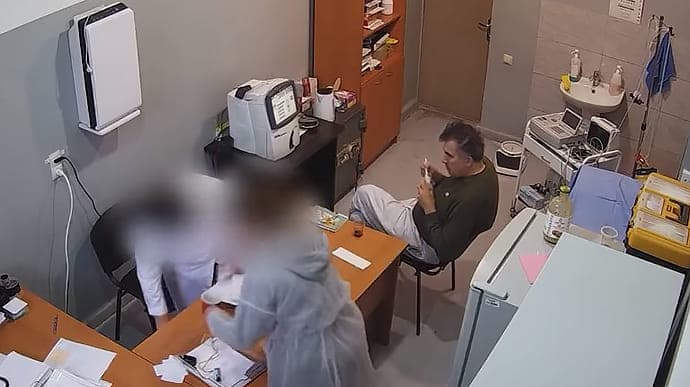What is happening in Georgia?
Ex-Georgian President Mikheil Saakashvili, a Ukrainian citizen, returned to Georgia on Oct. 1. He was arrested upon arrival and jailed on what he says are trumped-up charges. He has been on a hunger strike since his arrest.
On Nov. 18, he was transferred to an intensive care unit after falling unconscious. Georgia’s human rights ombudsman Nino Lomjaria said he may fall into a coma and die due to his critical condition. On Nov. 19, Saakashvili’s lawyer Nika Gvaramia reportedly said that Saakashvili agreed to be transferred to a military hospital and end his hunger strike.
Why did Saakashvili return to Georgia?
Saakashvili returned to Georgia in an effort to boost support for the opposition in the Oct. 2 local elections. But the plan backfired, and the ruling Georgian Dream party won the elections with nearly 46.7 percent of the vote. The opposition cried foul and tens of thousands of people took to the streets to protest against Saakashvili’s imprisonment.
Why does Saakashvili say the charges are trumped-up?
After Saakashvili left Georgia in 2013, the Georgian authorities convicted him in absentia on abuse of office charges by pardoning police officers convicted of murder. He was also convicted of ordering the beating of an opposition lawmaker and charged with embezzlement and the unlawful cracking down on protesters.
Interpol and most Western governments don’t recognize the verdicts against Saakashvili. “I knew that I would most likely be arrested based on fabricated, false verdicts, which were issued on (Russian President Vladimir) Putin’s orders,” he wrote in a letter from jail. “No country in the world except Russia recognizes this sentence.”
How did Ukraine react?
The Ukrainian authorities have pledged to defend Saakashvili's rights and help him return to Ukraine.
What is Saakashvili’s track record in Georgia and Ukraine?
Saakashvili carried out radical free-market and law enforcement reforms during his tenure as president of Georgia from 2004 to 2013.
He later moved to Ukraine. In 2015 then-President Petro Poroshenko appointed Saakashvili as governor of Odesa Oblast and granted him Ukrainian citizenship. The two later fell out, with Saakashvili accusing Poroshenko of blocking reforms.
As a result, Ukrainian authorities stripped Saakashvili of Ukrainian citizenship, prosecuted him in an organized crime case and deported him without a court warrant in 2018. Saakashvili has pointed to Poroshenko’s actions as evidence of a “political vendetta” against him.
After President Volodymyr Zelensky came to power in 2019, Saakashvili’s Ukrainian citizenship was restored and the ex-president was appointed head of the Executive Reform Committee at Zelensky’s administration.










